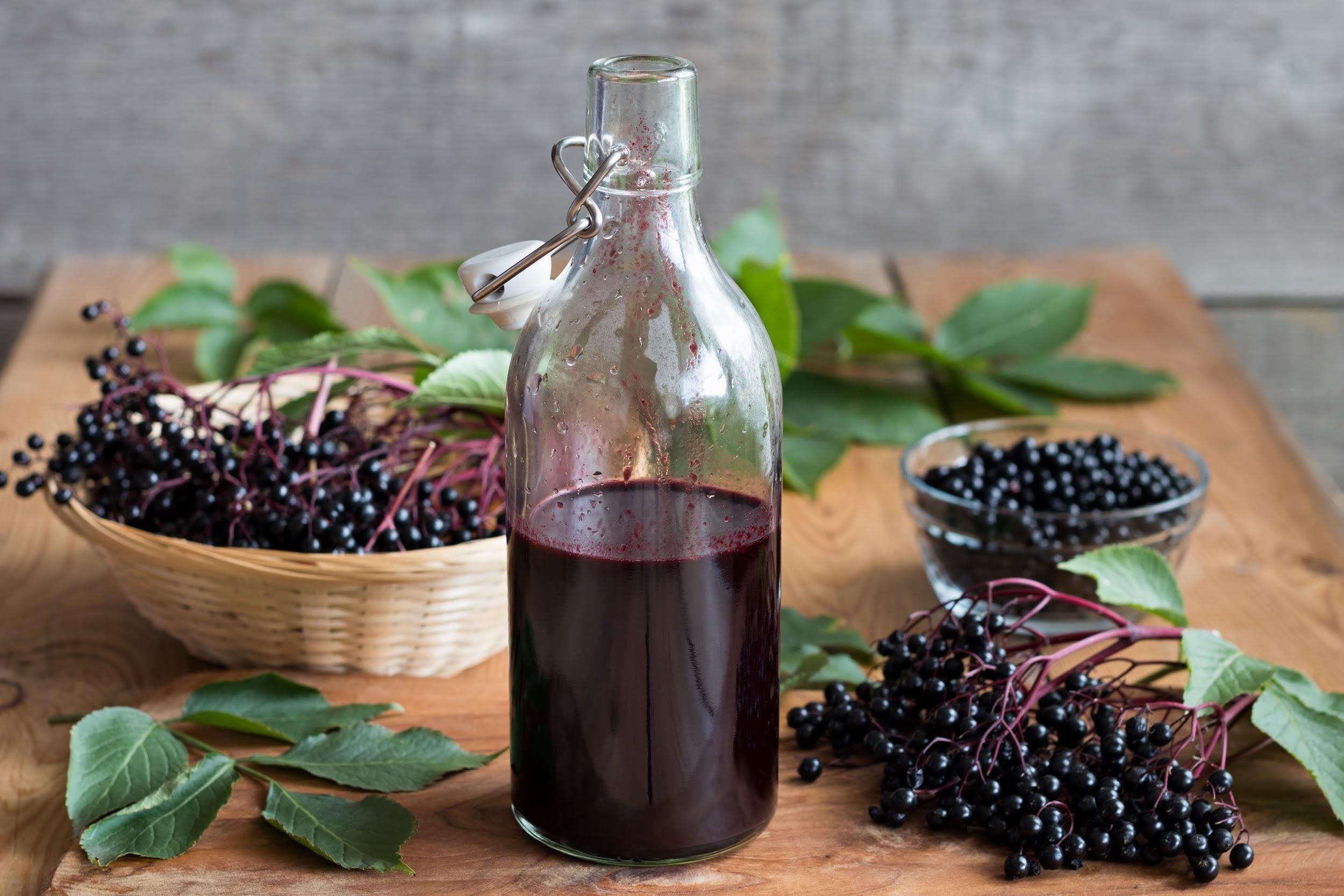
The Medicinal History & Benefits Of Elderberry
Elderberry is one of the most used medicinal plants, but how much do we know about this whimsically named plant. Keep reading to discover the evolution of the elderberry and its health benefits.
What Is Elderberry?
Known by many names throughout history, elderberry is the dark purple berry from the European elder tree. The berries are quite tart, and you would have to cook them if you’d like to add them to your meal while the flowers can be eaten raw or cooked. All parts of the elderberry tree have been used throughout history in culinary and medicinal contexts.
Known widely as a remedy for the common cold, influenza and H1N1 “swine” flu. It is also revered for its immune-boosting properties, sinus pain relief and more. This plant has many uses which we touch on in this article.
The Medical Of History Of The Elder Tree
Native Americans and European herbalists have long used this plant and its berries for their supposed health remedies. Historically, the leaves and flowers have been used for inflammation, swelling, pain relief, to induce sweating and to stimulate the production of urine. Every part of the plant was perceived to have medicinal properties. The bark was used to induce vomiting, as a laxative and as a diuretic.
Hippocrates often referred to as the ‘father of medicine’, himself described the plant as his ‘medicine chest’ which he used to tend to various ailments. The elder is a legendary plant with medicinal uses that have been documented as far back as Ancient Egypt and span many cultures and countries.
There are many other references to this medicinal aid throughout history, and it’s no wonder why. What are the proven health benefits of the elderberry used in modern medicine?

Health Benefits Of Elderberry
There are many recorded benefits of elderberries. Besides being nutritious, they also offer a myriad of other health benefits:
- Good for heart health - Studies show that elderberry juice can decrease cholesterol. A diet high in flavonoids like anthocyanins can reduce the risk of heart disease.
- High in nutrients – they are high in vitamin C, dietary fibre, phenolic acids, flavanols and anthocyanins.
- High in antioxidants - the leaves, fruits and flowers of the elderberry plant are rich sources of antioxidants.
- May improve cold, and flu symptoms – black elderberry extracts of elderberry are known to reduce the length and severity of influenza.
- May have some antidepressant properties – there is evidence that elderberry leads to improved performance and mood.
- Immune support – studies show that elderberry polyphenols were found to support immune defence by increasing the number of white blood cells.
- Fight harmful bacteria – the plant is known to stunt the growth of harmful pathogens like Helicobacter pylori.
- Help fight cancer – studies show that elderberries have cancer-inhibiting properties.
In conclusion, many studies support the various medical benefits that this plant offers the field of medicine. More than just a nutrition addition to your diet, the elderberry is a medicinal superfood.

